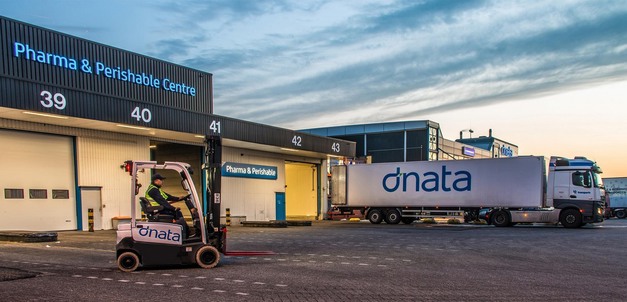dnata handles up to 42,000 tonnes of delicate flowers each year from its advanced Amsterdam cargo facilities.
Orchids, chrysanthemums, and the ever-popular roses are the most popular types of 27,000 tonnes of flowers imported, arriving daily into the European continent from key source markets in East Africa and South America. One of the busiest times of the year is the two- to three-week window before Valentine's Day in February, with multiple freight aircraft arriving each day to supply Europe's love birds.
dnata's Amsterdam facilities also manage the export of 15,000 tonnes of flowers annually, primarily the home-grown gerbera, gypsophila and peonies.

Jan van Anrooy, Managing Director, dnata Netherlands, said: "Understanding our customers' requirements is crucial to ensuring perishable items such as flowers preserve their freshness and longevity, maintaining the value for our customers. Our customer-oriented team and best-in-class facilities ensure that perishable cargo is processed quickly and efficiently throughout the transportation process."
Speed and temperature key
In order to maintain temperature control of flowers, speed of handling while limiting manhandling of the product is key, from unloading off the aircraft, into the dnata facility, and onto the trucks and freight forwarders. dnata's highly-trained teams can typically empty a full freighter aircraft of flowers and load them onto forwarding trucks in around 90 minutes. If required, dnata's cool chain facilities at its Amsterdam hub provide cold storage to maintain freshness before they are transported to market, auctioned, and distributed throughout Europe.
Major investment in cargo operations
dnata currently provides ground and cargo handling services to 37 airlines at Amsterdam Airport Schiphol (AMS) with a team of 1,000 dedicated aviation professionals who handle 10,000 flights and move 540,000 tonnes of cargo annually.
In 2024 dnata will significantly enhance its operations in The Netherlands by opening a fully automated cargo center, dnata Cargo City Amsterdam, at AMS. One of the largest and most advanced facilities of its kind, including certifications for sustainability and eco-friendly design, the 61,000 m2 facility will use cutting-edge technologies and be capable of processing over 850,000 tonnes of cargo annually. This will include perishables, pharmaceuticals, dangerous goods, mail, live animals, aircraft engines, and vehicles.
Global certifications
dnata's Amsterdam facilities are certified by IATA's Centre of Excellence for Independent Validators in Pharmaceutical Logistics (CEIV Pharma). This demonstrates the company's ability to move pharmaceutical products under the strictest standards. Further certification for Good Distribution Practice (GDP) describes the minimum standards that a wholesale distributor must meet to ensure that the quality and integrity of medicines are maintained throughout the supply chain. These certifications demonstrate dnata's dedication to good distributive practices and quality in every aspect of service delivery.
For more information:
dnata
dnata.com
